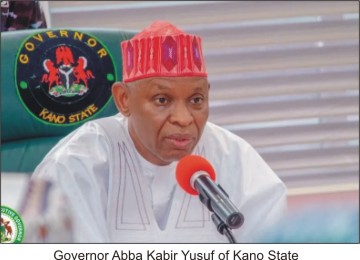
Following the tragic death of 22 Kano athletes and officials in a motor vehicle accident on their way home from the 22nd National Sports Festival in Ogun State, stakeholders have proposed ways to prevent similar tragedies in the future.
In reality, respondents had a variety of different points of view on what contributed to the unfortunate and awful event that occurred in Kano state, as well as how to best avoid or prevent it from happening again in the future.
Coach Ibrahim Gwadabe, chairman of the Kano State Football Coaches Association, started it in an interview with this website when he called on stakeholders to work together to get the Kano state government to end overnight trips for our athletes whenever they travel for games.
According to him, he had privileged information indicating that the driver would have been weary following a sleepless night due to weariness and night driving.
That spurred coach Gwadabe to make a heartfelt appeal to all Kano state sports stakeholders to band together and urge the Kano state government to restrict and prohibit NIGHT travel for sports teams.
The Kano Football Coaches Association chairman also encouraged the government to create a comprehensive transit system for this purpose, which he believes will significantly decrease or even avoid similar tragedies in the future.
My findings also indicated that the commission’s use of aging, worn-out cars for these kind of sports trips, which commonly break down, was either partially to blame or a contributing factor to the awful situation.
It was also revealed that the same bus developed a problem while in Abeokuta, forcing the late driver to travel to Lagos to replace some broken parts before returning home that night.
For this reason, many of the people I spoke with about this matter are against our athletes and officials continuing to travel overnight and using outdated vehicles.
Without a doubt, we are well aware that night travels, particularly at this time, have numerous disadvantages, including:- Security risks, poor road infrastructure and weariness and underperformance.
It is worth noting that long, restless overnight trips increase fatigue, lowering athletes’ physical readiness and performance levels.
But, knowing how difficult it is to get people together and reach a consensus on a problem like this, I took on the task of calling numerous sports people to seek their thoughts on the issue at hand.
While some answered by putting their hands on their keyboards to convey their thoughts in writing and send, others used voice messages, which I had to transcribe. But sadly, others declined to say anything.
As I mentioned before, when the terrible news emerged, there were diverse views, with some supporting the idea of restricting night travel for athletes, some recommending changes, and yet others holding a completely opposing position.
My mentor, Sani Muhammad Zaria, was the first person I contacted to get his thoughts on how to permanently put an end to this heinous pattern that has killed our people in one location at once.
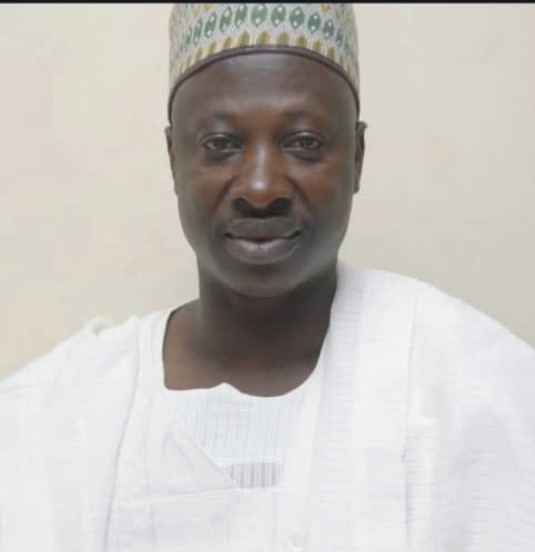
Sani Zaria was the one who first introduced me to sports journalism. He was the president of the Sports Writers Association of Nigeria (SWAN) between (1996 -2002) and a former Group Sports Editor for Triumph Sports and the New Nigerian Newspapers. His views:
Going ahead, I am of the opinion that athletes should be prepared to go by flight wherever if the distance exceeds 500 kilometres.
I don’t see any hurdle to this because the government can afford it. The situation is dire and things must be done to forestall it.
This can be easily achieved if the government can collaborate with any of the airlines and get the job done at a discounted rate.
Bar Yusif Abdussalam, a journalist turned lawyer as well as an online publisher has this to say:-
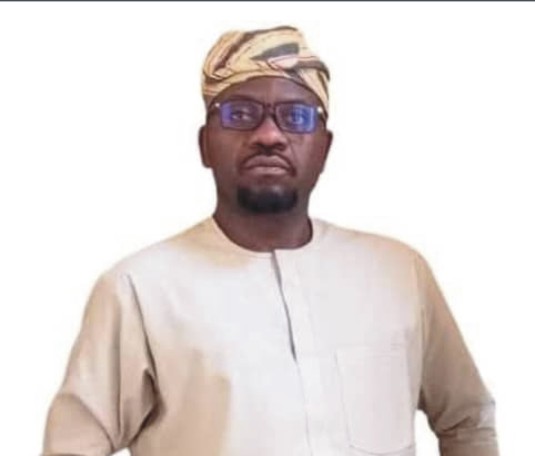
To me, what led to that tragedy was beyond the question of when sportsmen travel, night or day. When sportsmen travel is immaterial, so far as other more important issues are taken care of.
Their overall welfare is far more important than the ephemeral concern. For instance, how good was the vehicle that conveyed them? Can the commissioner of sport travel in that kind of vehicle to Zaria?
We understand that the vehicle had some mechanical problems. So, a bad vehicle is not befitting for a trip, night or day.
Of course, in Kano State today, sports administration is not in good hands. The state governor has relegated it to the dark corner of extreme neglect. That must change.
He must put sports administration in capable hands; those who can give him the best advice on what to do to move it forward.
Muhammad Ibrahim Mansour, Vice President (North), SWAN

The 22nd edition of National sports festival which commenced from May 16th to 30th 2025, sports gladiators and athletes from 36 states including Abuja gathered in Ogun state for the biennial sports festival,(Gateway 2024) which usually attracts the best of Nigerian Athlete.
Delta state won the 22nd edition with 337 medals to come first. This includes 126 gold, 100silver and 111 bronze medals. Kano state came 13th with 29 medals, 6 gold, 13 silver and 10 bronze medals.
Kano continents left Abeokuta to Kano on Friday after the closing ceremony had an accident and 22 people lost their lives.
The last batch of the 36 contingents, which consist of mainly officials and a few athletes, had a stopover at Abuja that fateful day only to be reported at about 11:00am to have had an accident in Kano a few kilometers to their destination. Which 22 passed away (may the soul of the departed rest in peace).
Causes of the accident: Many are of the view that the accident may have occurred as a result of the stress of the night journey, which I personally did not subscribe to due to the fact that the driver was very experienced and had been on that same journey for more than 25 years.
Another reliable source said, the vehicle developed faults when they arrived at Lokoja, which made them sleep in Abuja.
The source also said when they arrived at the bridge (point of accident) what they noticed was the vehicle (bus) hit the side of the bridge and was roaming on the bridge before it finally fell into the bridge. That means the brake had failed.
Way forward:It is on record that all the vehicles of the Kano State Sports Commission are obsolete and required replacement.
In fact, I am aware that the commissions don’t have any reliable vehicles beside the one that had an accident.
Compared to state contingents from Delta, Edo, Rivers who use recent Marcopolo buses with A/C and good welfare.
The state should stop risking the lives of athletes. Provide sound vehicles and should be replaced after three year.
Abdulfatai Yusuf, Depuy Registrar ADUSTECH, sports follower
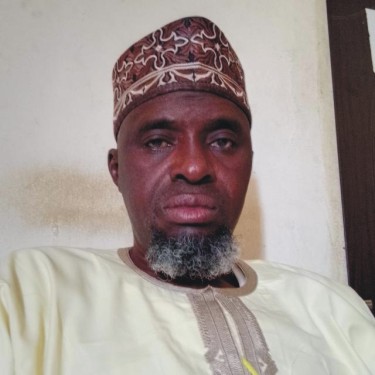
For me, the protection against any future occurrences on the accident that occurred where our sport men perished should be avoided.
My suggestion is to the Kano State Sport Commission to be employing two assistant Drivers whenever there is going.
This is what or the way private Commercial Buses are applying (Luxurious Buses) which they use to divide the journey for the drivers to drive which it will gives them available resting sleeping time. Thank you.
Muhammad Lawan Lukman, staunch soccer follower, educationist and current HOD Printing Technology Department, Kano State Polytechnic
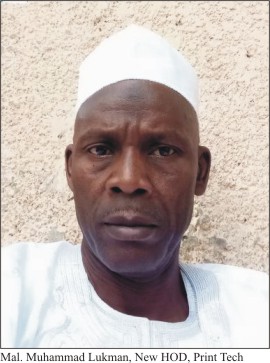
First of all, I extend my heartfelt sympathies for the unfortunate loss of 22 young athletes in a recent car accident on their way home.
Such terrible occurrences highlight the critical need to re-evaluate our transportation safety standards, particularly for our young.
While road travel is conventional, its inherent risks, particularly over long distances, are undeniable.
That is why, I humbly suggest a transformative alternative: the implementation and promotion of ‘Plait’ transportation.
‘Plait’ transportation, a more organized, perhaps even rail-based or dedicated pathway system could drastically reduce the perils associated with road accidents.
Therefore, investing in a robust, safe alternative transportation network, perhaps including dedicated and secure ‘Plait’ corridors, would not only honor the memory of those lost but also safeguard countless lives in the future.
This strategic shift would minimize exposure to traffic hazards, improve journey predictability, and provide a secure travel environment for all citizens, especially those engaging in group travel for sports or educational purposes.
I urge the government to consider this critical shift for a safer future.
Musa N. Yalo, footballer
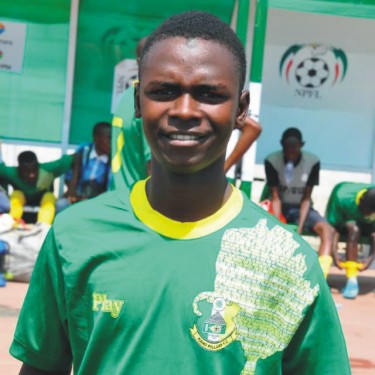
To me, there is no reason why the persons who will represent this state in these events (National Sports Festival) should travel by road.
As a result, the usage of an airplane in this situation is critical and important. Even while no one can stop what Almighty Allah has planned, if essential precautions are taken, factors like tiredness will be significantly decreased or eliminated.
As a result, the government must adjust the manner in which our athletes and officials are transported to various competitions.
Lawan Dauda Fagge aka Baba Lawan Coach, Chief Coach Kano State Under 15 team and Chief Coach Kano Pillars Under 13 Team
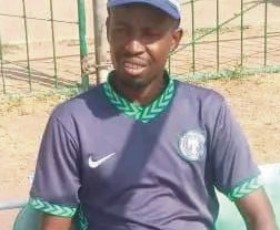
To me, the government should cancel any trip involving players and their officials around 6 p.m. or 6.30 p.m.
It is documented that traveling by bus used to be something else, particularly in this era of instability, insecurity and poor roads.
That is why I want the government to modernize the Sports Commission’s transportation unit by giving new, roadworthy vehicles.
If funds are available, I would like the government to consider transporting our athletes and officials by air for their protection.
This is because Kano Pillars have benefited from the government’s goodwill, and I see no reason why our contingents in other sports will not do the same. It would undoubtedly minimize the number of accidents involving our players on our roadways to an absolute minimum.
Jamily Abduhamid Bello, Secretary General KASHIGA
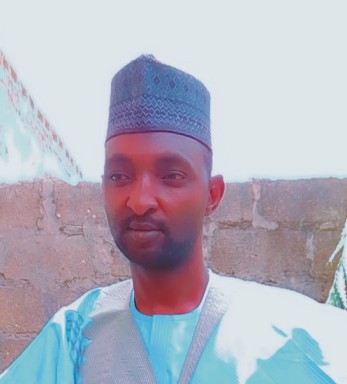
Honestly speaking, I believe that sports are becoming more than people expect. As a result, it is now a standalone sector in northern Nigeria, specifically Kano.
So, if that’s the case, I’m calling on the Kano government and the people to save the state’s sports by providing contemporary facilities and upgrading the decrepit ones.
As a result, contemporary vehicles for both staff and athletes should be available to escape such a tragic situation.
The government should also emphasize vehicle upkeep to ensure that they remain roadworthy at all times.
As we are aware, mortality is unavoidable; nonetheless, precautions should be done to limit night driving and travel.
Jamilu Abubakar, Deputy Registrar, former member Sports Committee, ADUSTECH
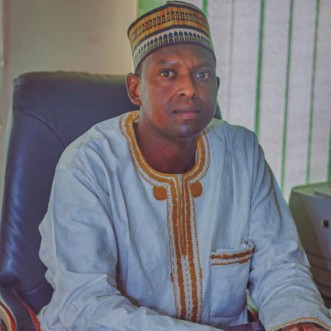
I’ll start by praying for the fallen athletes. May Allah (SWT) offer kindness to the departed souls and make Jannatul Firdaus their ultimate resting place. Ameen.
To me, Kano State’s sports activities require a complete makeover. The Kano State Government must prioritize sports in accordance with best practices around the world.
The government should involve people with sports knowledge and experience in order to transform the sector so that it can compete on a local and international scale.
Long night. Traveling on the road should be avoided. And if the travel is deemed important, it should be done during the day and with an extra/reserve driver.
Alternatively, if it were up to me, all long journeys for sporting events or activities by our athletes would be by air.
This is because, in addition to increasing our athletes’ morale, it allows them to perform better because they are not exhausted or fatigued.
Abba Dukawa, journalist and Public Affairs Commentator
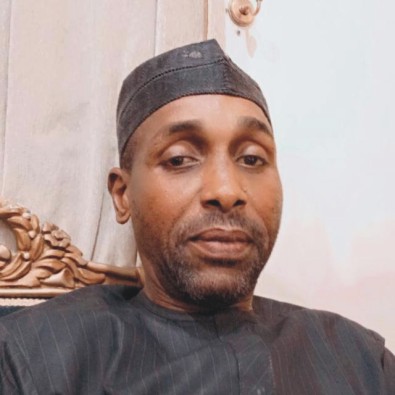
I learned with great sadness of the fatal road accident in Dakatsalle that claimed the lives of 22 athletes and officials representing Kano State in Abeokuta, the capital of Ogun state.
While the tragedy was heartbreaking, there was some solace in knowing they died while serving their country.
However, to avoid similar deaths, the government must emphasize road safety and improve transportation safety measures.
This includes dealing with systemic difficulties such as vehicle upkeep, driver fatigue management, and certifying cars for official travel.
Furthermore, the government should consider health insurance for athletes and officials prior to any travel. There should be a special package for anybody involved in such a trip.
If it were up to me, athletes and officials should be carried to their destinations by commercial flights, and night flights should be outlawed as they are Kano state representatives.
The government should be aware that the bulk of the deceased were primary breadwinners in their respective houses. Therefore, their death will leave their families with unforeseen financial difficulty.
The government should now step in, as widows with poor or no consistent income sources will undoubtedly struggle to support themselves and their children.
As a compassionate leader, Abba Kabir Yusuf, Abban Kanawa could consider ways to address these issues, such as monthly stipends for financial security.
Educational Scholarship Programs for children of deceased athletes should be guaranteed.
And I urge the government to reconsider the One Million Naira support package, because it appears insufficient and inadequate for long-term support.
Garzali Benzema, coach FC Diamond, Hotoro, Kano
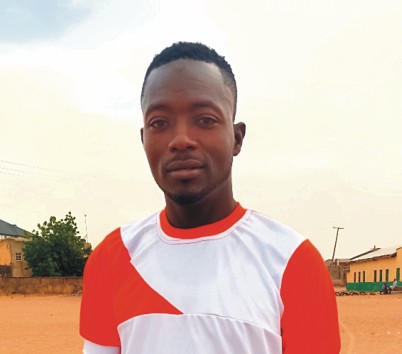
To me, if possible, all sports excursions should be by plane to avoid uncertainties, and if that is not possible, travel should be limited to daylight hours only.
This is due to the risk involved with our roads. We are all aware of our terrible roads, combined with their insecurity.
That is why we should start our excursion early in the morning and end it around 6 or 6.30 p.m. So that everyone can relax before continuing their journey the next day.
Shehu Adamu, former Kano Pillars Media Officer, Head of News and Current Affairs of the NTA, Kano
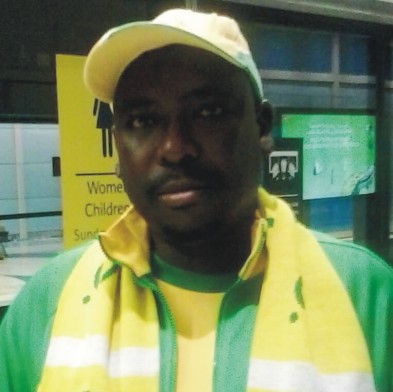
For years, the Nigerian sports industry appeared to be pushed to the background. But the authorities only pay special attention to the sector during international football games in which the country will compete, as well as during any national sporting events in the country, such as the Olympics or Commonwealth Games.
The authorities’ casual approach toward our local athletes resulted in insufficient preparations, which led to catastrophes and several disputes impacting the welfare of athletes and officials.
A case of reference was the recent auto crash, which led to the death of 22 Kano athletes and officials on their way home from the 2025 National Sports Festival held in Abeokuta, Ogun state.
Although I have a different opinion on the causes of the accident; while some are of the view that it was a natural tragedy; others opined that fatigue was responsible for it.
My prayer to the dead is that, May the souls of the departed rest in Jannatul Firdaus, and may Allah grant the injured quick recovery.
However, whatever the causes of the catastrophe may have been, it is evident that until the authorities examine the following, our young athletes, officials, and families will continue to bear the brunt of the consequences:
1. Promote private investment in sports.
2. Remove politics from sports activity by appointing the right hands. Professionals should be appointed to manage the sports sector
3. If (item one) of the above is not practicable, appropriate funding must be supplied to ensure the athletes’ and officials’ well-being.
4. Night travel for athletes and authorities should be prohibited entirely.
5. Where financial resources are available, flying travel should be pursued for safety and fatigue reduction.
6. Sports administrators must have checks and balances in place to encourage financial transparency and responsibility.
Ismaila Ammai Maizare, former Kano Council NUJ chairman, who is also the currently the General Manager, Radio Nasara, Kano
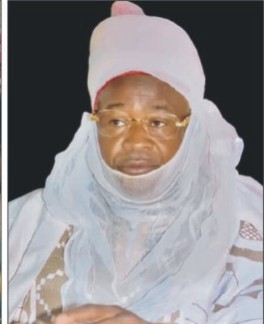
For me, any sporting trip should now begin early in the morning in order to cover a considerable distance before 6 to 6.30pm.
And once it is 6pm-6.30pm, the crew can stop at any nearby, safe area to recover and sleep before continuing their trip the next morning.
The second alternative is for the sports commission’s management to look at the possibility of using two drivers for any journey so that one can take over when the other exhausts.
I also agree with the idea of moving any sporting team that is going to represent the state to any distance beyond 500Km by air if there is availability of funds.
Ahmad Suraj, Head of Sports Directorate, North-West University, Kano
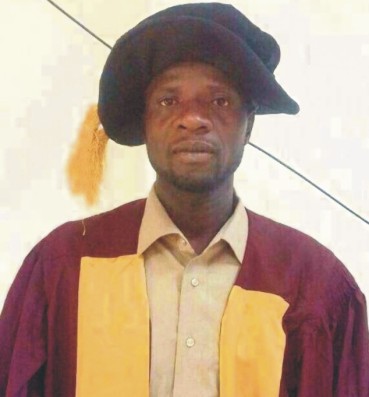
To me, the horrific accident involving 22 Kano athletes emphasizes the necessity for increased safety precautions.
Given the fiscal limits of state governments, increasing air travel might not be viable for now. Instead, focusing on improving road travel safety through measures like:
1. Mandatory rest breaks
2. Overnight accommodations
3. Adjusted allowances for safe travel
The government should implement them and create standards for athlete transportation and work with authorities to enforce restrictions and provide appropriate resources for safety measures.
Alternative Solution: While air travel might be ideal, exploring cost-effective options like:
Chartering buses with safety features, implementing strict driver screening and training
For instance, private organizations’ approaches, like Nile University’s air travel sponsorship, can serve as models for motivation and safety.
However, state governments can explore alternative incentives within their means. Balancing Safety and Funding: Prioritizing athlete safety while considering budget constraints can lead to effective solutions.
Muhammadu Salisu Rabiu, former chairman of Kano State branch of Sports Writers Association of Nigeria (SWAN), ex-member Kano State Football Association, ex-Reporter of VOA etc
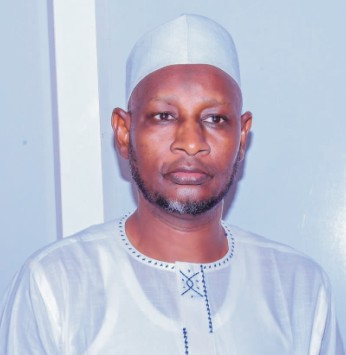
Realistically it is not feasible to ask or suggest the movement of our athletes and their officials to any destination air.
I can’t ask or suggest for what I know is not going to be feasible. But I will rather suggest for an early morning movement of the team(s) to wherever they are travelling in good time and break the trip once it is 6pm.
This is a global trend whenever it’s 6pm you stop and look for accommodation and lodge all the athletes and your drivers and you can continue the journey the following morning.
If I am not mistaken that is what the management of Kano Pillars are employing for decades and is working perfectly.
However, given the state government’s complaints about a lack of funds, promoting air travel may not be feasible for the time being; instead, focus on enhancing road transport.
Muhammad Wasilu Kawo, Journalist, Sports Programme Presenter, Kano Governor’s Special Reporter
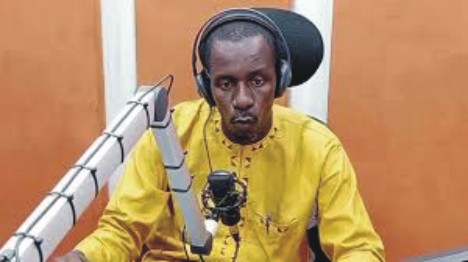
In reality, I am against going on any type of sporting vacation with our players who represent the state at night.
To reduce uncertainty, all trips should be done during the daytime. The Sports Commission’s management should take note of this in order to prevent the events that occurred a few days ago from happening again.
In my opinion, day trips are safer and more convenient than night trips, thus we should embrace them to avoid or overcome any unforeseen circumstances.
Bashari Ahmad Maizare, PhD, is the former Director of Sports, former Chairman Directors of Sports
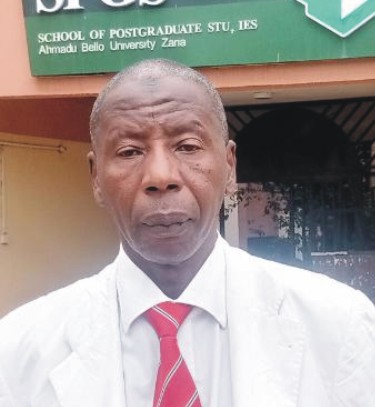
Some teams, in my opinion, envelop their athletes in night time trips due to the following characteristics: Thus:-
Dominance of road travel: Due to poor air connection and budgetary constraints, a large number of sports teams in this country, particularly at the state and local levels, rely on road transportation. They frequently depart or return at night to save money (e.g., on lodging) or meet early competition schedules.
Notable Instances:
In 2019, the Nasarawa United football team was involved in a serious road accident while returning at night from a match, prompting calls for improved travel logistics.
Several student-athlete contingents traveling to NUGA Games (Nigerian Universities Games) have reported travel delays and night-time arrivals, causing late registrations or missed events.
But there were some reported cases of how other African states like Ghana, Kenya and even South Africa mixed air and road trips. While elite athletes may fly, national teams often travel overnight by bus due to cost.
But better road and transport systems allow teams to travel safely at night which is lacking in this country.
Standard Practices
Air travel preference: Most professional and collegiate athletes travel by air. Night journeys mostly via flights, often accompanied by team doctors, physiologists, and logistical staff.
Benefits and Risks
Recovery planning: Teams flying at night are often given ample recovery time post-landing.
Jet lag management: Especially critical in international events like the Olympics or World Cup.
Key Takeaways: What Sports Federations and Institutions Can Derive
1. Investment in Logistics
States governments must prioritize daytime travel or secure overnight options to ensure athlete safety and performance. Government and private partnerships can help subsidize safer travel modes for youth and local athletes.
2. Safety and Recovery
Institutions should plan adequate rest windows post-travel. Deploy support staff (nutritionists, therapists) during long travels.
3. Policy Recommendations
Enforce minimum rest periods before competition following night travel. Encourage inter-state coordination for secure convoys or escorted transport.
4. Potential Innovations
Sports travel grants to support amateur teams’ safe movement. Use of travel data analytics to assess fatigue risks (as done in pro sports globally).
Based on the comparative findings and realities of sports logistics in Nigeria and beyond, I strongly recommend against night journeys for Team Kano State when traveling to or from competitions within Nigeria.
The risks and negative impacts clearly outweigh the benefits. Here’s a summary of the recommendation for Daytime Travel Only for Team Kano State
Reasons:
1. Security Concerns
High risk of highway banditry and kidnappings, especially on major Nigerian routes after dusk.
Night travel increases vulnerability for teams with young athletes and limited protection.
2. Fatigue and Performance Impairment
Night journeys reduce sleep and recovery time, which directly affects athletic endurance, focus, and injury resistance.
Sleep deprivation before matches is linked to poor decision-making and underperformance.
3. Road Safety and Infrastructure
Poor lighting, potholes, and road signage make accidents more likely at night.
Emergency response is slower at night in case of vehicle breakdowns or accidents.
4. Health and Welfare of Athletes
Ensuring daytime travel reduces mental stress and physical exhaustion, especially for younger or first-time competitors.
We should know that Night Travel is Not Recommended Except When:
Air travel is involved, and athletes are flying overnight with next-day recovery built into the schedule.
Unavoidable logistical circumstances exist, and only with:
Proper security escort.
Medical personnel on board.
Recovery/rest plans for at least 12–24 hours before competition.
Suggested Best Practices for Team Kano State
Depart in the morning or early afternoon, even if it means arriving a day early.
Provide overnight accommodation when needed rather than returning immediately after late games.
Coordinate with state and federal agencies (e.g., police escorts, sports commissions) to ensure safe daytime movements.
Budget ahead for travel days and rest periods.
Last but not least, Team Kano State has to institutionalize daytime travel since it will undoubtedly save lives, improve performance, and preserve the honor of professional sports. In the long run, this creates a more competitive and healthy team culture.
According to the data presented above, practically all respondents oppose night trips due to the dangers involved with them.
That is why, for the benefit of Kano Team members’ health and safety, the Kano State Government should prohibit night trips and only allow teams to travel during the day for national events.
To curtail such disappointments and uncertainties, the government should also revive the Kano State Sports Commission’s transportation section as well as that of Kano Pillars Football Club by providing new buses and cars for their trips.
